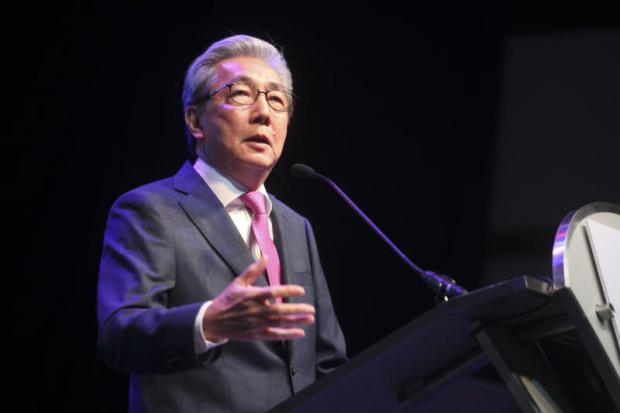
The government has ordered the Labour Ministry to speed up national labour reforms to make them compliant with the Thailand 4.0 policy, which focuses on using high technology and innovation to create more value-added products.
The government is eager to promote the next generation of Thai industry over the next five years, Deputy Prime Minister Somkid Jatusripitak said yesterday. He added that the Labour Ministry is yet to outline the labour developments needed to cope with such changes.
"Many companies have already submitted applications related to these new industries to the Board of Investment. Over the next five years those projects are set to be implemented, but concrete labour upgrade plans from the Labour Ministry itself are not yet available," he said.
The Thai government has flagged 10 targeted clusters meant to modernise the country's industry as part of the government's Thailand 4.0 scheme.
The targeted industries are: automotive and auto parts, including electric vehicles; smart electronics; affluent, medical and wellness tourism; agriculture and biotechnology; food; robotics for industry; logistics and aviation; biofuels and biochemicals; digital; and medical services.
Mr Somkid said the Labour Ministry needs to come up with a master plan for human resource development to serve those targeted industries.
"The ministry has to have clear data about demand for human resources in each sector for future development," he said. "It's also a must for the ministry to carry out plans to upgrade unskilled labourers and determine how to recruit more foreign workers from Myanmar, Laos and Cambodia to help develop Thailand's existing industries."
Mr Somkid said the Thai government also needs to take care of the welfare of foreign workers to ensure that they have better living conditions.
"In the future, the private sector may need to play a greater role to help train foreign workers and provide them with a better quality of life. Thailand is becoming an ageing society with a smaller workforce," he said.
The cabinet last week approved a package of measures to deal with the ageing population, including tax incentives for companies that hire senior workers, reverse mortgages and a mandatory provident fund.
Companies that hire ageing people with a salary of 15,000 baht a month or less will be eligible for a 100% corporate tax deduction on expenses incurred.
There are an estimated 94,000 employees aged 60 years and above nationwide.
The government also aims to promote private-sector investment in building residences, clinics and entertainment spaces for the elderly on state-owned plots.
The Treasury Department has prepared four plots for the private sector to build "senior complexes": 50 rai in Chon Buri, 14 rai in Nakhon Nayok, 64 rai in Chiang Rai and 7.5 rai in Chiang Mai.
The rental fees in the first three locations will be discounted to one baht per square wah, while those for the Chiang Mai plot are set at 24 baht per square wah.
The lease will be for 30 years and can be extended for another 30.